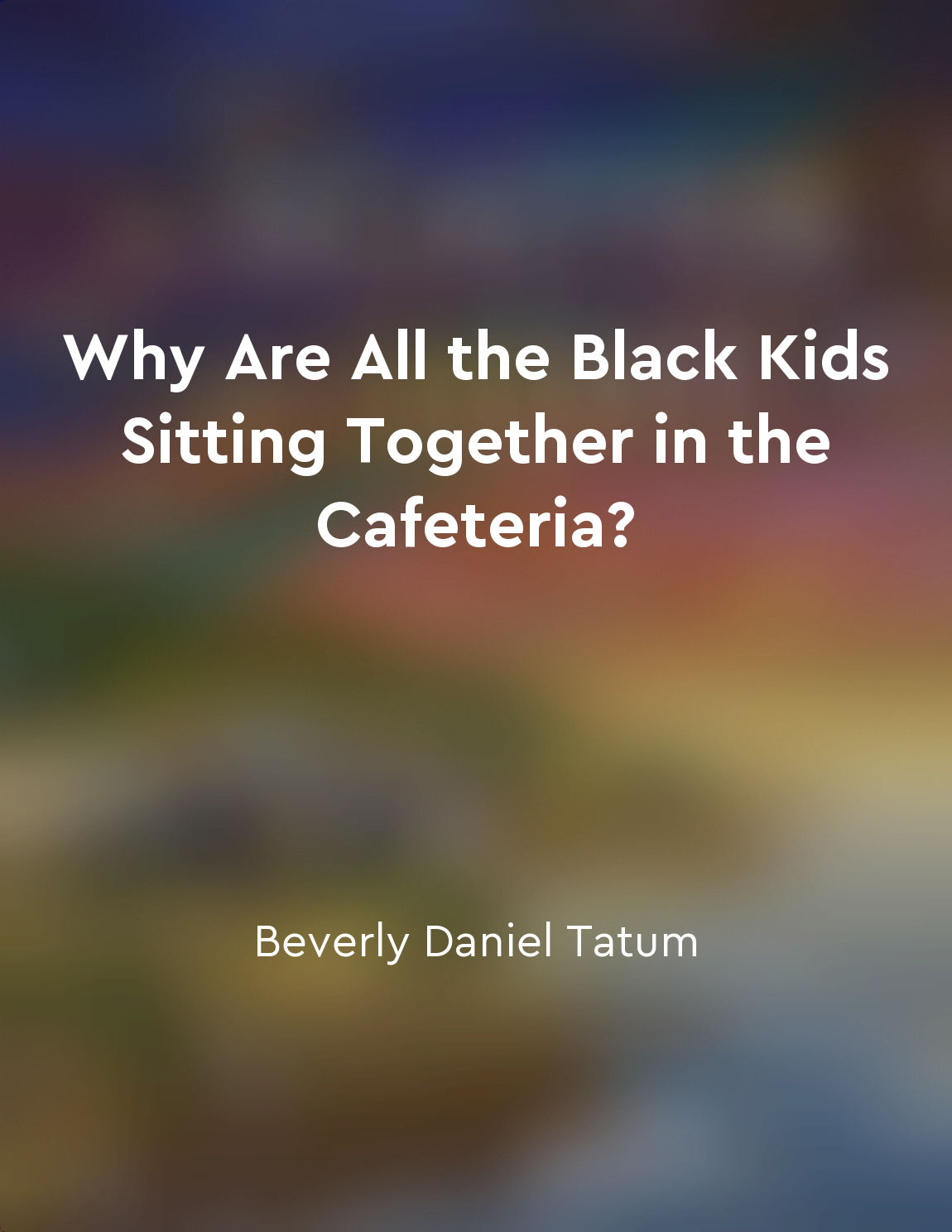Schooling is a site of power struggles from "summary" of Schools and Society: A Sociological Approach to Education by Jeanne H. Ballantine,Joan Z. Spade
The concept of power struggles in schooling refers to the ongoing battles for control and influence within educational institutions. These power struggles can manifest in various forms, including conflicts between students and teachers, administrators and faculty, and even among different groups of students. At the heart of these power struggles is the question of who gets to make decisions, set agendas, and shape the direction of schooling. One key aspect of power struggles in schooling is the tension between authority figures, such as teachers and administrators, and students. Teachers and administrators often hold the power to enforce rules, assign grades, and set curriculum, which can create a dynamic where students feel disempowered and marginalized. This power differential can lead to conflicts over issues such as discipline, grading policies, and academic freedom. Similarly, power struggles can also arise among different groups of students, based on factors such as race, class, gender, or ability. These power struggles can take the form of bullying, cliques, or exclusionary practices, as students seek to assert their dominance or maintain their social status within the school environment. These dynamics can have a significant impact on students' experiences and outcomes in school, shaping their sense of belonging, self-esteem, and academic success. In addition to conflicts between students and authority figures, power struggles in schooling can also play out at the institutional level, as different stakeholders vie for control over resources, policies, and decision-making processes. This can involve battles between teachers' unions and school districts, parent groups and administrators, or policymakers and educators, as each group seeks to advance its own interests and agendas.- The concept of power struggles in schooling highlights the complex and contentious nature of educational institutions, where competing interests, values, and ideologies are constantly in play. By acknowledging and understanding these power dynamics, we can better appreciate the challenges and opportunities inherent in the educational process, and work towards creating more equitable and inclusive school environments for all students.
Similar Posts
Hannah's cries for help go unnoticed
Hannah's cries for help go unnoticed. People pass by her every day, caught up in their own lives and problems. They see her smi...
Control the options to control the outcome
To control the outcome, you must first control the options available to others. By limiting their choices, you can steer them i...

Stereotypes can influence behavior
Stereotypes are powerful forces that shape our perceptions of others and can influence our behavior towards them. When we hold ...
Ethical dilemmas arise in pursuit of success
In an unrelenting quest for advancement, individuals often find themselves standing at an ethical crossroads. The path to succe...

The quest for knowledge requires intellectual curiosity and a willingness to challenge assumptions
Intellectual curiosity is the driving force behind the quest for knowledge. It is the desire to explore, to question, and to un...
Work within the system to subvert it
The first step in subverting the system is to understand its inner workings. Without a deep knowledge of how the system operate...
Violence is a constant threat
The notion that violence is a constant threat looms large in the novel. The protagonist grapples with the fear of violence thro...
Mirrors reveal hidden truths and lies
In this world of mirrors, nothing is ever as it seems. These reflections have a way of distorting reality, showing us not only ...
Colonialism
Colonialism is a system of power that is centered on the idea that some people are superior to others. It is a system that seek...

